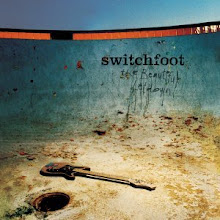1st May 2013, Population White Paper Protest @ Hong Lim Park.
It will be the second of such protest to voice citizens' concern over the proposed Population white paper. Planning ahead is never easy but it is necessary! The government did something "Good" by preparing, planning into the future but more has to be done to calm our worries.
Over the years I have found Christians are little different than non-Christians in their attitudes and responses toward authority. Compliance is given, but cooperation is not. For example, I would be just as likely to find a radar detector in the car of a Christian (even one serving the Lord), as I would in the car of an unbeliever. Christians comply with the law. We slow down as we pass the police car with its radar speed detection equipment. We drive carefully and lawfully when the patrol car is following us. But as soon as we are sure it is safe, we drive normally—and illegally.
In Romans 13:1-7, Paul deals directly with the Christian’s attitude and conduct with respect to governmental authority. In particular, Paul addresses the Christian’s relationship to civil government. There are a number of reasons Christians and civil government might be at odds with one another, and Christians might wrongly twist these into excuses for disrespect and disobedience to authorities.
First, civil government is secular in nature while Christianity is spiritual. Christians are aliens and strangers, just passing through this world (see 1 Peter 1:1). Their citizenship is in heaven (Philippians 3:20). Second, the state can look upon Christianity as competitive, even hostile to its authority. The Christian’s highest authority is God. In Rome, Caesar was “god.” Because of this, Romans considered Christians as atheists. Christianity was eventually seen as treasonous. Third, at times Christians were required to “obey God, rather than men” (see Acts 5:29), which openly confirmed the government’s suspicions. Fourth, government officials, either unconsciously or willingly, used their authority to actively oppose the church and to persecute Christians.
If governmental authorities began to view Christians with suspicion, and even fear, Christians also were tempted to see government as their opponent, and as an enemy of God and the gospel of Jesus Christ. Civil disobedience might easily become common practice rather than a necessary exception. Submission to governmental authority was a vital topic in a day and time when the Lord’s church and civil government were on a collision course.
Tough decision: On having two Casinos, Government's stand on 377a, sentencing of City Harvest Church leaders; Examples of Faith vs State. The hijack of Aware by Christian groups, removing of Mandatory Death Penalty. Let's work towards common good with common sense.
Government concerns is with survival, economy, old folks.
Citizens concern are comfort, space, competition, future.
Try stepping into each others shoe to see their views from a different angle.
Nehemiah 5 1-13
The “Great Protest”
A great protest was mounted by the people, including the wives, against their fellow Jews. Some said, “We have big families, and we need food just to survive.”
Others said, “We’re having to mortgage our fields and vineyards and homes to get enough grain to keep from starving.”
And others said, “We’re having to borrow money to pay the royal tax on our fields and vineyards. Look: We’re the same flesh and blood as our brothers here; our children are just as good as theirs. Yet here we are having to sell our children off as slaves—some of our daughters have already been sold—and we can’t do anything about it because our fields and vineyards are owned by somebody else.”
I got really angry when I heard their protest and complaints. After thinking it over, I called the nobles and officials on the carpet. I said, “Each one of you is gouging his brother.”
Then I called a big meeting to deal with them. I told them, “We did everything we could to buy back our Jewish brothers who had to sell themselves as slaves to foreigners. And now you’re selling these same brothers back into debt slavery! Does that mean that we have to buy them back again?”
They said nothing. What could they say?
“What you’re doing is wrong. Is there no fear of God left in you? Don’t you care what the nations around here, our enemies, think of you?
“I and my brothers and the people working for me have also loaned them money. But this gouging them with interest has to stop. Give them back their foreclosed fields, vineyards, olive groves, and homes right now. And forgive your claims on their money, grain, new wine, and olive oil.”
They said, “We’ll give it all back. We won’t make any more demands on them. We’ll do everything you say.”
Then I called the priests together and made them promise to keep their word. Then I emptied my pockets, turning them inside out, and said, “So may God empty the pockets and house of everyone who doesn’t keep this promise—turned inside out and emptied.”
Everyone gave a wholehearted “Yes, we’ll do it!” and praised God. And the people did what they promised.
Subscribe to:
Post Comments (Atom)




No comments:
Post a Comment